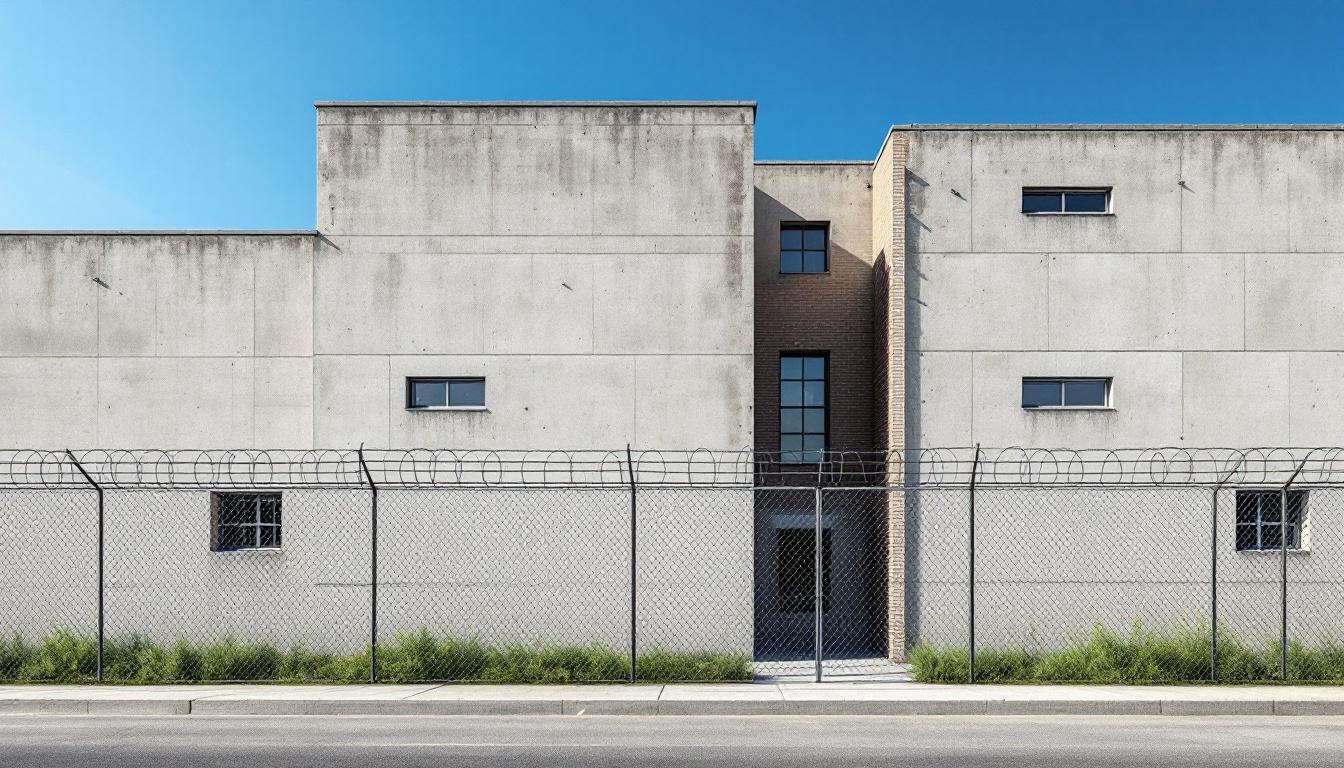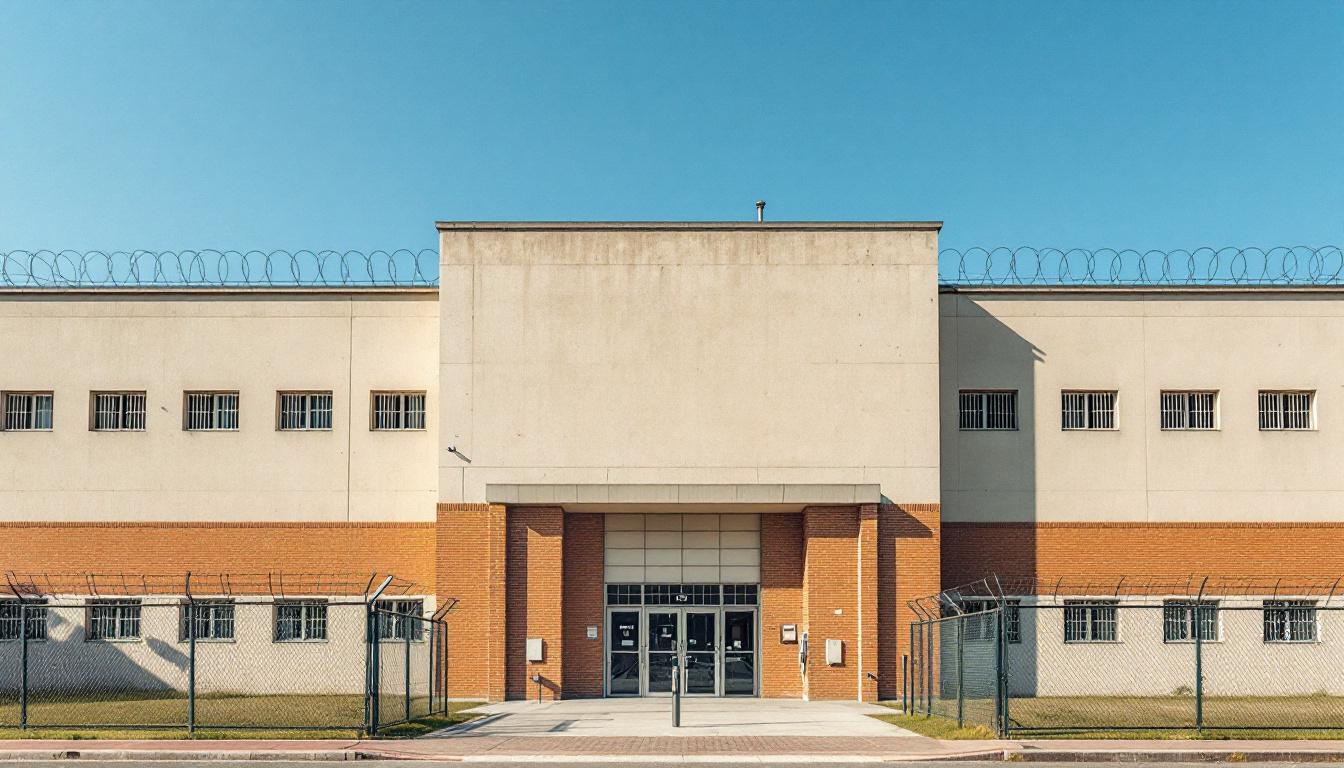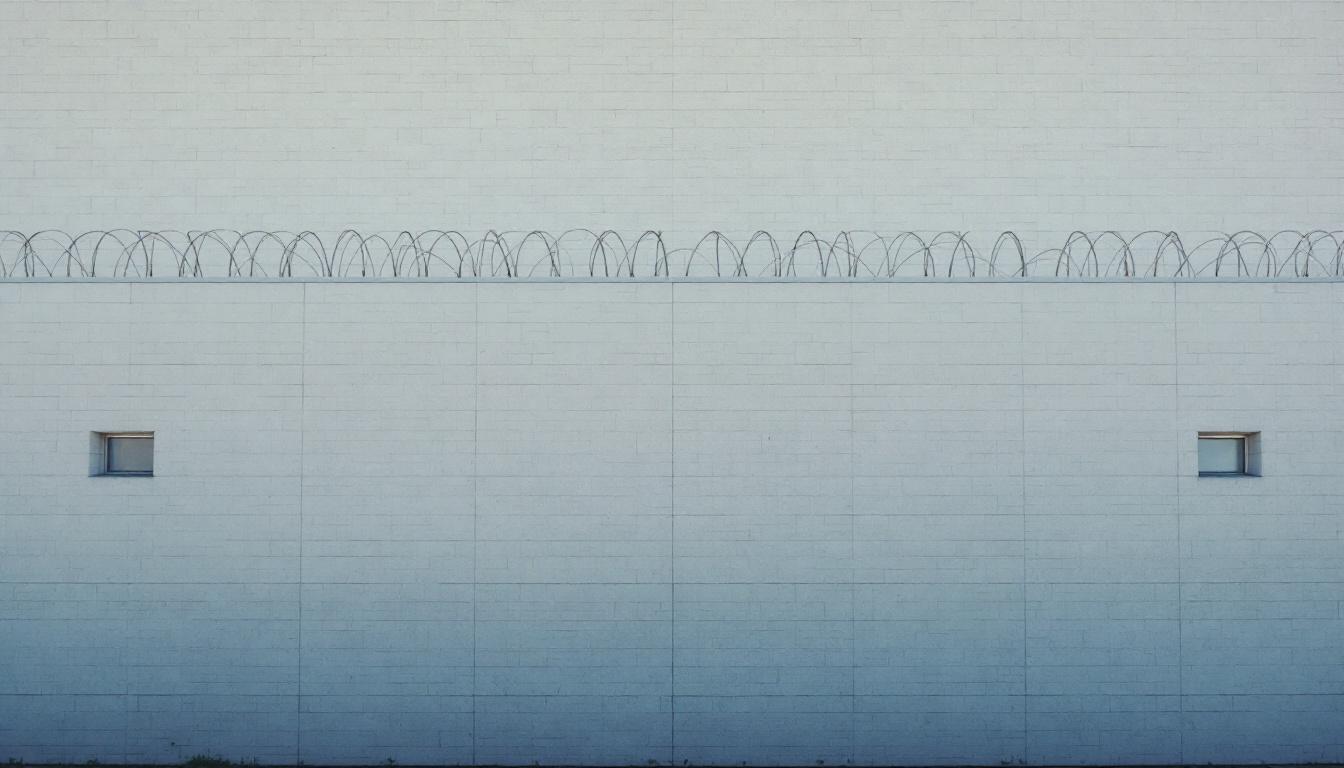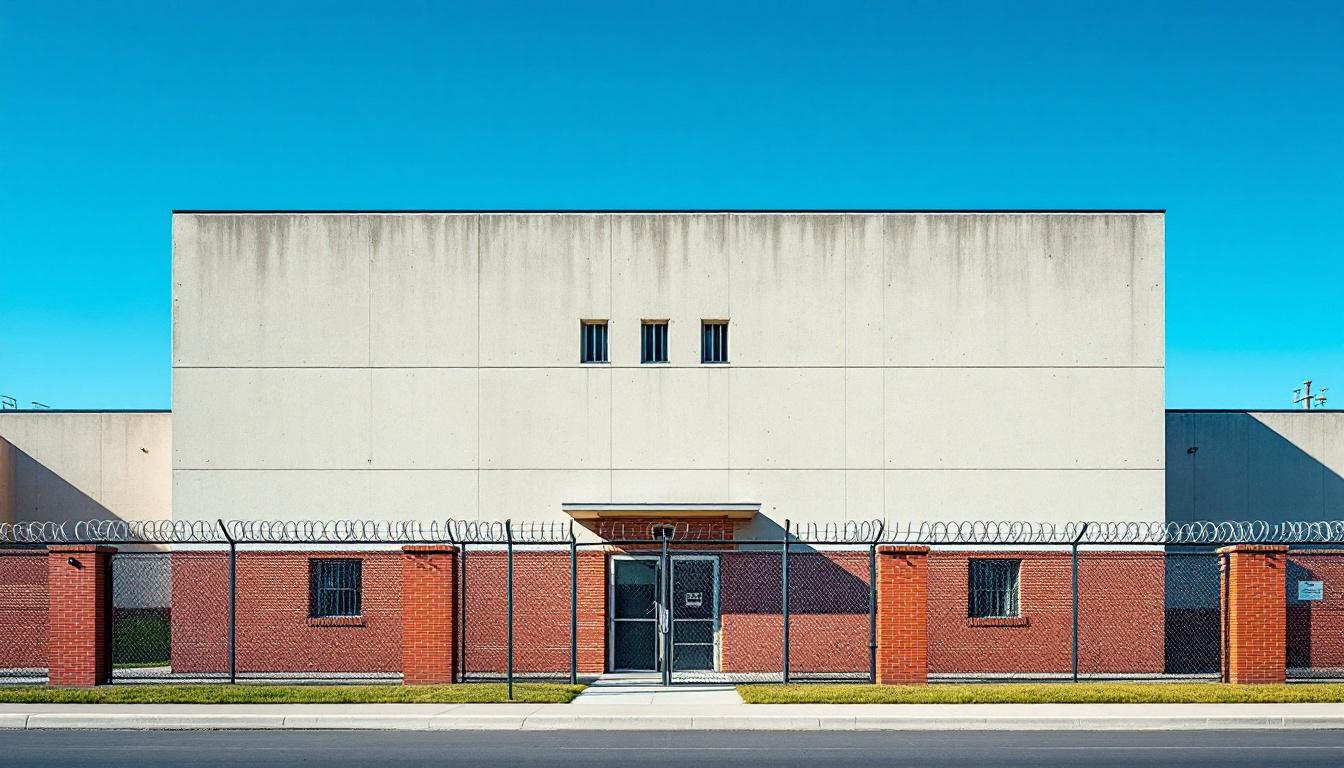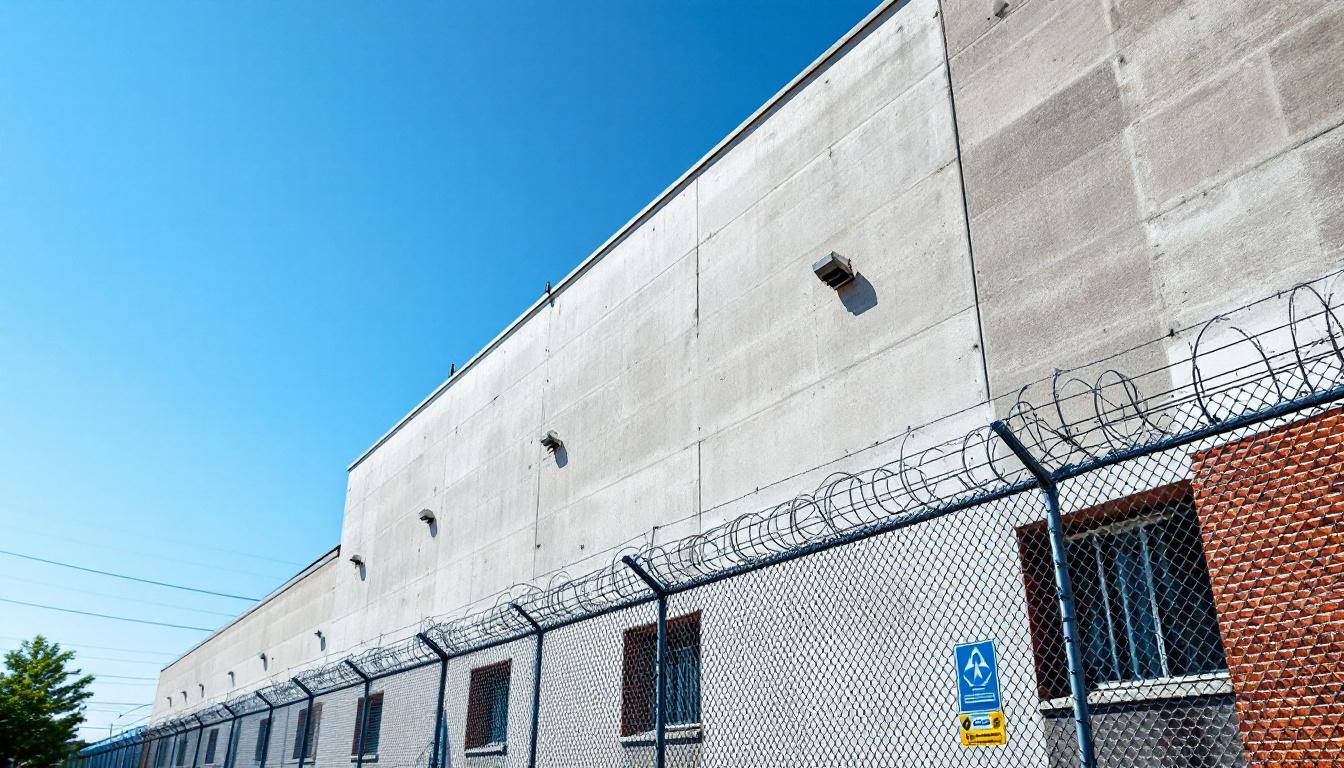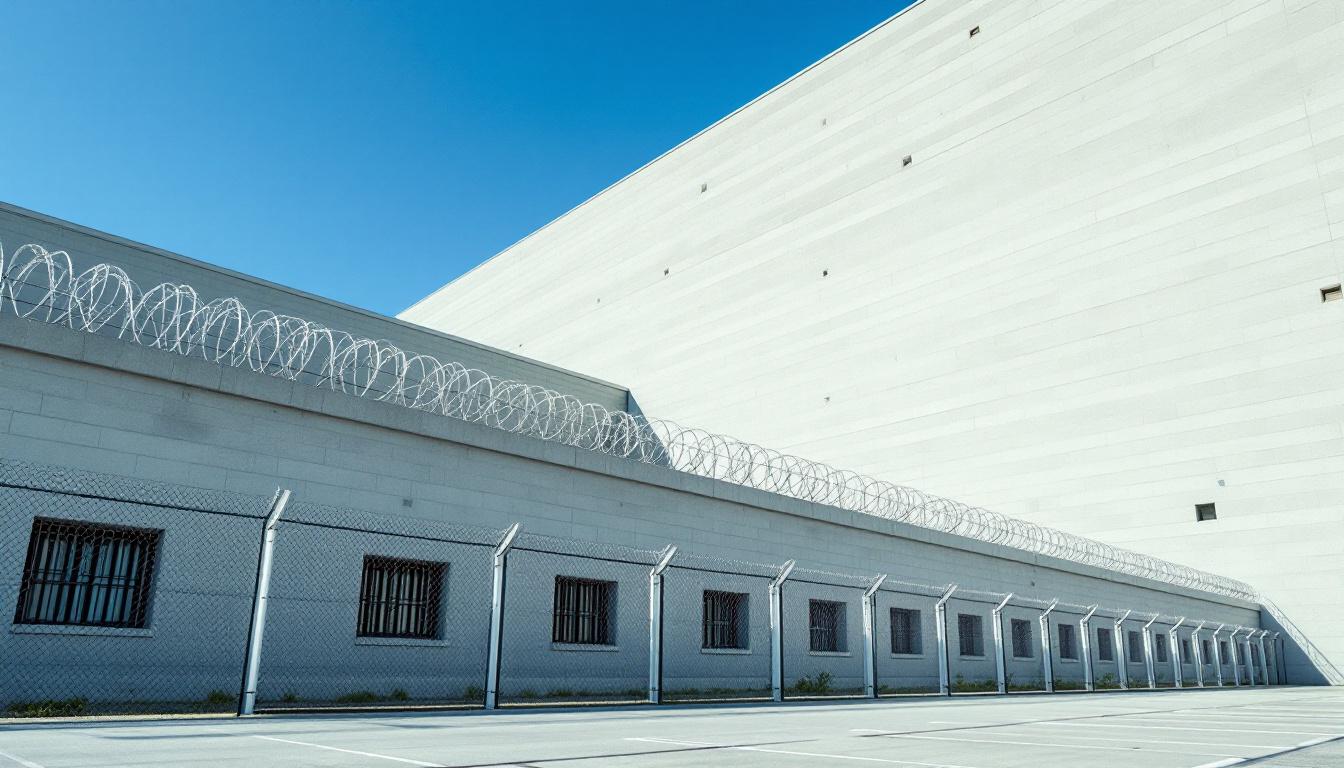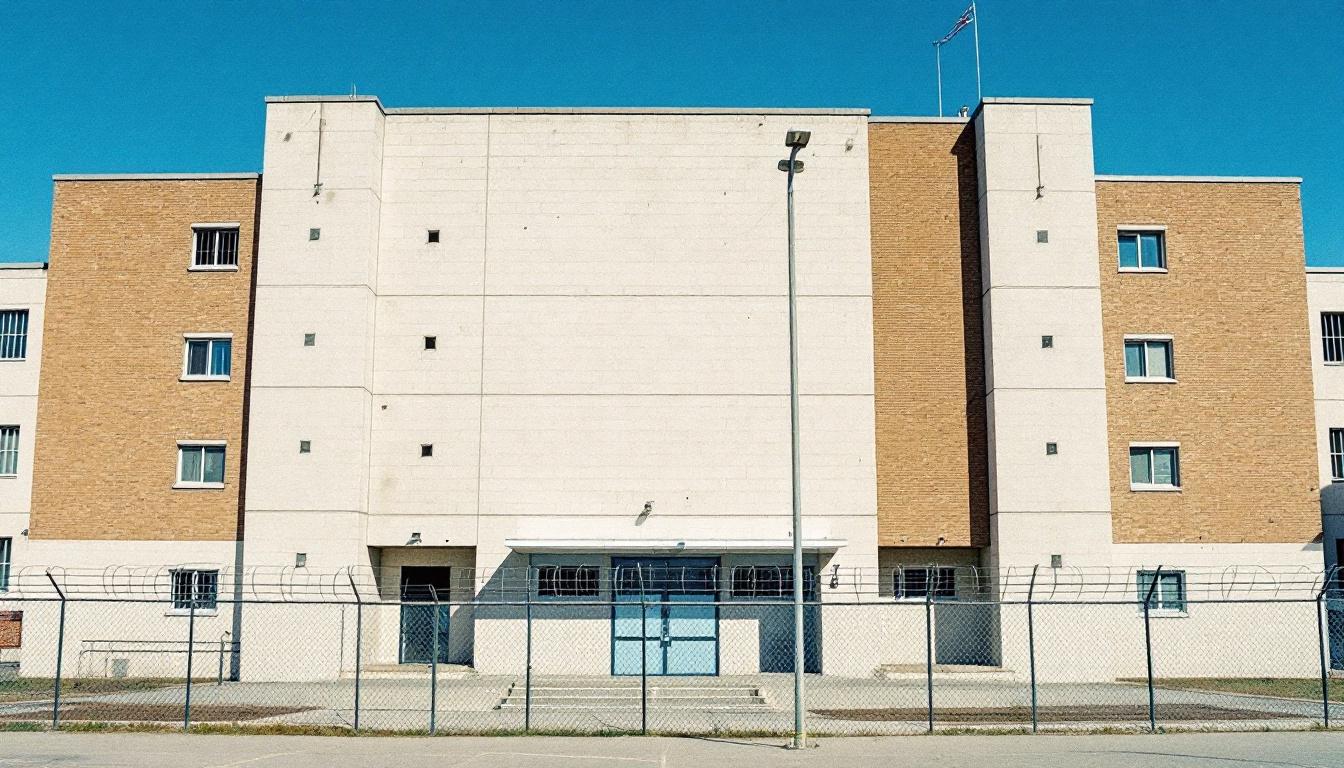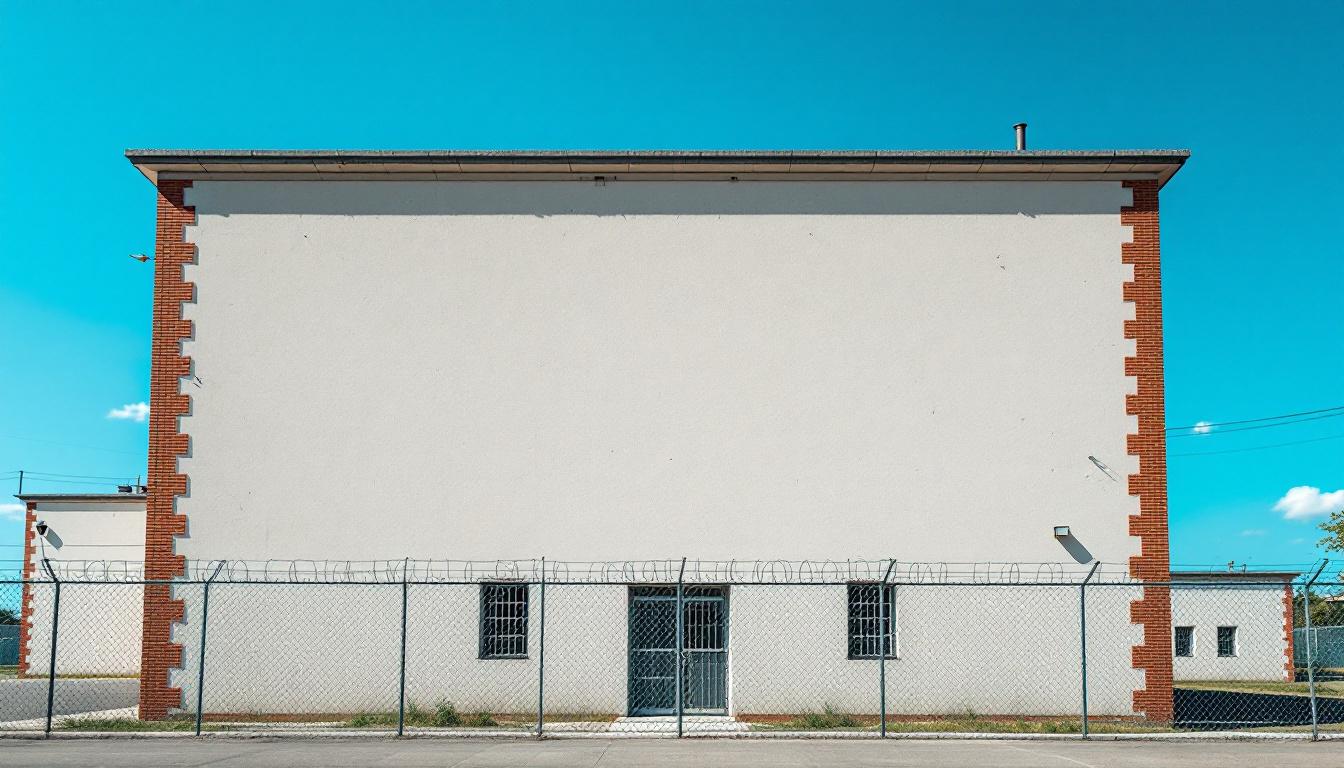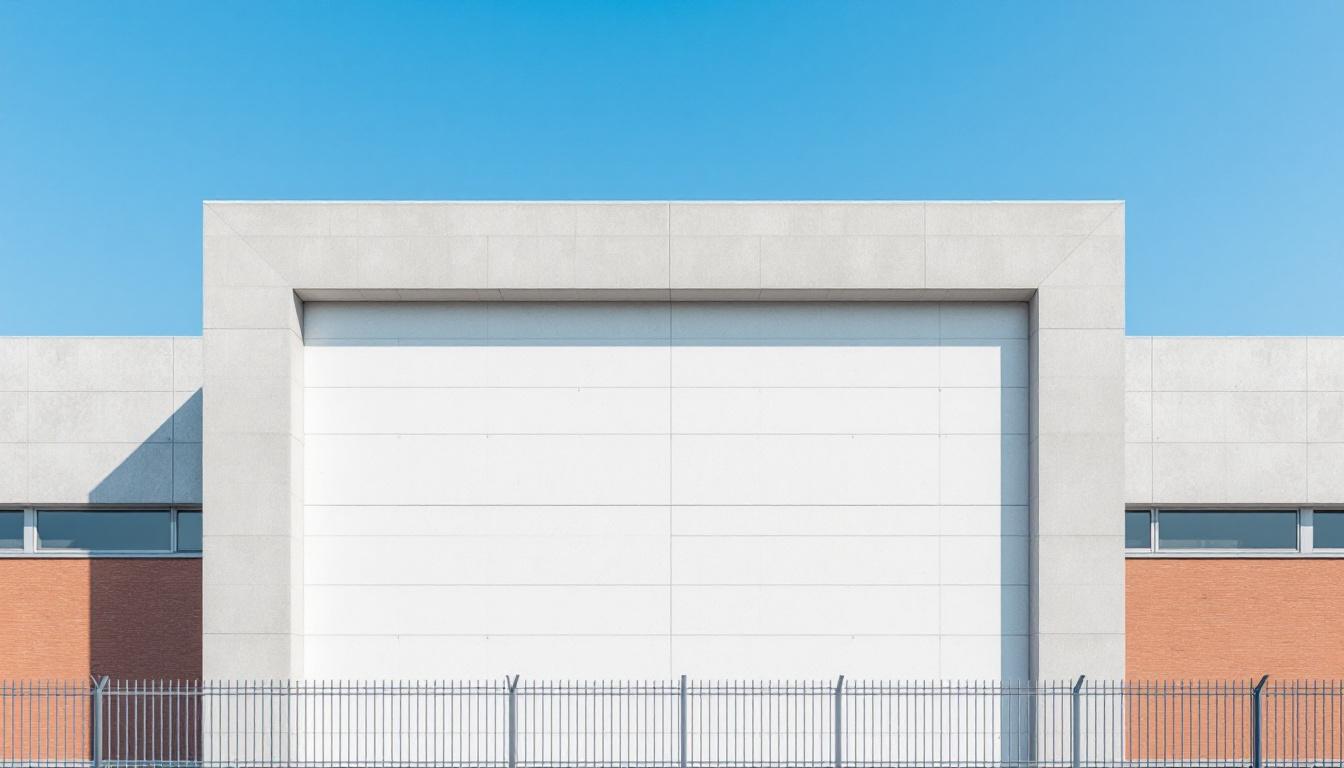
Quick Navigation
How to contact an inmate at Hardin County Correctional Center
This comprehensive guide will walk you through how to connect with an inmate at Hardin County Correctional Center. Follow the steps below to find an inmate and send letters and photos:
- Search for the inmate using our search tool below
- Create your account or log in to Penmate
- Write your message (up to 6,000 characters)
- Send instantly - inmates receive printed copies daily
Find an Inmate
Search for an inmate to start communicating today
Tip: You can search by first name, last name, or inmate ID number
To contact a person at Hardin County Correctional Center start by searching for the person on the facility website. Perform a search by following these steps:
- Step 1: Enter their first name and last name into the search form and click "Search"
- Step 2: Locate their inmate record
- Step 3: Write down their Inmate ID and any housing information provided
Important! Be sure to enter the person's full name. Nicknames should not be used.
How to Send Messages to Inmates

You can use your phone or computer to send emails, letters, and photos to an inmate. Messages are sent electronically to inmate tablets or kiosks at the facility. If you would like to send a message, start by searching for an inmate at Hardin County Correctional Center.
Sending Photos and Postcards

A great way to send love and support to a loved one at Hardin County Correctional Center is to send photos and postcards. It only takes a few minutes to send photos from your phone and it makes a huge difference. You can also mail postcards with words of support and inspiration, or design your own postcard for special moments like birthdays and holidays.
Important! Be sure not to send any explicit photos or they may not be approved by the facility. You can also use a photo printing app like Penmate to make sure your photos are printed at the correct size (4x6 or 3x5) and are mailed according to the rules and regulations of Hardin County Correctional Center.
Frequently asked questions about Hardin County Correctional Center
-
How long does it take to deliver a message?
If you're sending an email message your letter is usually delivered within 24-48 hours. For messages sent via mail you should expect delivery within 3-7 days. All messages will need be approved by Hardin County Correctional Center.
-
How much does it cost to send a message to Hardin County Correctional Center?
You can send a message free using your phone or mail a message via USPS for the price of a $0.60 stamp and envelope. You can also purchase credits or e-stamps from services starting at $1.99.
-
What services can I use to contact an inmate at Hardin County Correctional Center?
Penmate
You can use Penmate to send letters and photos to an inmate from your phone. It's an easy way to stay in touch during your loved one's incarceration. Use the inmate locator to find an inmate's location and contact information, then you can send messages within a few minutes.
Securus messaging
Securus may be another option for communicating with an inmate at Hardin County Correctional Center. You can create a friends and family account and purchase credits to send messages. All messages will be reviewed and must be approved by the facility.
JPay
Some county jails and state prisons may support sending messages with JPay. You must register an account with the system, find your loved one, and purchase stamps to send messages. For some locations you can also attach photos.
Smart Jail Mail
You may also check if Smart Jail Mail is available at Hardin County Correctional Center. Smart Jail Mail is operated by Smart Communications and has contracted with some state and county jails. After purchasing credits, your messages and photos are sent to the facility, printed out, and then handed out to your loved one.
-
What is the mailing address of Hardin County Correctional Center?
Mailing address:
Hardin County Correctional Center
525 Water St
Savannah, TN 38372
Phone: (731) 925-3377Business hours:
- Monday: Open 24 hours
- Tuesday: Open 24 hours
- Wednesday: Open 24 hours
- Thursday: Open 24 hours
- Friday: Open 24 hours
- Saturday: Open 24 hours
- Sunday: Open 24 hours
-
What are the visiting hours at Hardin County Correctional Center?
Visiting hours at Hardin County Correctional Center vary by housing unit and security level. Generally, visits are scheduled on weekends and holidays, with some facilities offering weekday visits. Contact the facility directly at (731) 925-3377 or check their website for the current visiting schedule. Visits typically last 30-60 minutes and must be scheduled in advance.
-
What items are prohibited when sending mail to Hardin County Correctional Center?
Prohibited items typically include: cash, personal checks, stamps, stickers, glitter, glue, tape, staples, paperclips, polaroid photos, musical or blank greeting cards, hardcover books, magazines with staples, and any items containing metal or electronics. Only send letters on plain white paper with blue or black ink. Photos must be printed on regular photo paper (no Polaroids). Always check with Hardin County Correctional Center for their specific mail policies.
-
How do I send money to an inmate at Hardin County Correctional Center?
You can send money to an inmate at Hardin County Correctional Center through several methods: 1) Online using JPay, Access Corrections, or the facility's approved vendor, 2) Money orders mailed directly to the facility with the inmate's name and ID number, 3) Kiosks located in the facility lobby, or 4) Over the phone using a credit or debit card. Fees vary by method, typically ranging from $2.95 to $11.95 per transaction.
-
Can I schedule a video visit with an inmate at Hardin County Correctional Center?
Many facilities now offer video visitation as an alternative to in-person visits. At Hardin County Correctional Center, video visits may be available through services like Penmate, Securus Video Connect, GTL, or ICSolutions. Video visits typically cost $10-20 for 20-30 minutes and must be scheduled in advance. You'll need a computer or smartphone with a camera and reliable internet connection. Contact the facility for their specific video visitation policies and approved vendors.
-
What identification do I need to visit an inmate at Hardin County Correctional Center?
All visitors must present valid government-issued photo identification such as a driver's license, state ID, passport, or military ID. Minors must be accompanied by a parent or legal guardian who can provide the minor's birth certificate. Some facilities require visitors to be on the inmate's approved visitation list, which may require a background check. Contact Hardin County Correctional Center for specific ID requirements and visitor approval procedures.
-
How can I find out an inmate's release date?
To find an inmate's release date at Hardin County Correctional Center, you can: 1) Use the online inmate search tool if available, 2) Call the facility's records department, 3) Contact the inmate's case manager or counselor, or 4) Have the inmate provide this information during a call or visit. For privacy reasons, some facilities only release this information to immediate family members.
Facility Overview
Contact Information
Hardin County Correctional Center525 Water St
Savannah, TN 38372
Phone: (731) 925-3377

About Hardin County Correctional Center
County jails throughout Tennessee serve as essential components of local law enforcement infrastructure, with facilities like Hardin County Jail, TN providing critical detention and pre-trial services within their respective communities. Located in Phoenix, this TN correctional facility operates under the jurisdiction of Hardin County authorities, managing individuals awaiting court proceedings alongside those serving shorter sentences typically associated with misdemeanor convictions. The facility's operational framework reflects the broader mission of county-level corrections: maintaining secure custody while supporting the population services that contribute to both immediate public safety and longer-term community stability.
Within the context of Tennessee's correctional landscape, this county jail typically maintains programs designed to address the diverse needs of its detained population. Educational opportunities, substance abuse counseling, and vocational preparation may include partnerships with local service providers, though specific programming often varies based on available resources and community partnerships. The facility generally emphasizes maintaining family connections through visitation protocols and communication systems, recognizing that sustained relationships often contribute significantly to successful reintegration outcomes. Mental health services and medical care represent additional cornerstones of daily operations, addressing both immediate health concerns and chronic conditions that may impact an individual's path through the justice system.
Phoenix's geographic position within Hardin County influences the jail's role as a regional detention center, often coordinating with surrounding law enforcement agencies and court systems to ensure efficient case processing. The facility's contribution to public safety and rehabilitation extends beyond mere containment, incorporating evidence-based practices that may support behavioral change and community readiness upon release. Through collaboration with probation services, treatment providers, and reentry organizations, the jail typically works to create pathways that reduce recidivism while addressing underlying factors that contribute to criminal behavior.
Programs & Services
Comprehensive support services form the cornerstone of rehabilitative efforts, creating meaningful pathways for personal growth and successful community reintegration. Through carefully structured programming, the population gains access to resources designed to address both immediate needs and long-term stability, fostering an environment where individuals can develop essential skills while maintaining connections to family and community support systems.
Educational services typically provide foundational learning opportunities that enable participants to advance their academic credentials and build critical thinking capabilities. The facility may supply vocational programs that encompass practical skill development, including automotive repair training that equips individuals with marketable technical expertise. Also available are printing programs that offer hands-on experience in a specialized trade, allowing the population to develop professional competencies that often translate directly into employment opportunities upon release.
Faith-based programs frequently serve as vital components of the support structure, offering spiritual guidance and community connection through organized religious activities and personal counseling. Chaplaincy programs typically complement these services by providing pastoral care and crisis intervention support, creating safe spaces for reflection and personal development. These therapeutic and spiritual resources often work in conjunction with other rehabilitative efforts, ensuring that participants receive holistic support that addresses emotional, spiritual, and practical aspects of their rehabilitation journey while preparing them for successful reintegration into their communities.
Daily Life & Visitation
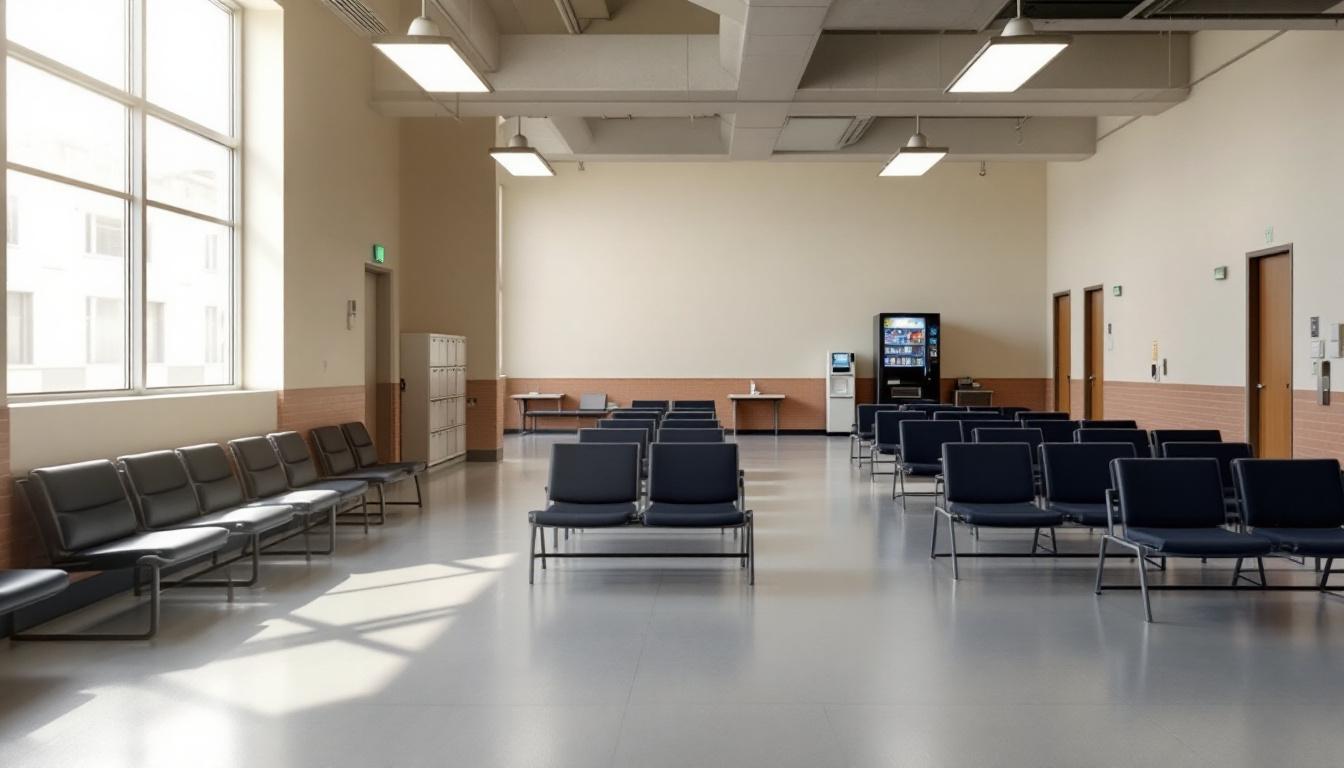
Systematic organization and structured scheduling shape every aspect of the experience for the population housed within the Hardin County Jail, where carefully coordinated routines are at present actively maintained to ensure both security and basic daily needs are met. The facility typically operates on a regimented schedule that generally begins with early morning wake-up calls, followed by headcounts and the distribution of meals at designated times throughout the day. Housing assignments are usually organized by classification levels, with the population distributed across various housing units based on factors such as security requirements, legal status, and behavioral considerations.
Living accommodations within the facility generally consist of shared cells or dormitory-style housing units, where individuals typically have access to basic amenities including bedding, personal hygiene items, and limited storage space for approved personal property. The population usually receives three meals daily, which are often served in designated dining areas or delivered directly to housing units depending on the facility's current operational procedures and security protocols. Also, commissary services may be available on scheduled days, allowing individuals to purchase additional food items, hygiene products, and other approved goods using funds from their inmate accounts.
Recreational opportunities typically supply structured time outside of cells, with the population generally having access to common areas, television viewing, and outdoor recreation when weather and staffing permit. However, programming schedules often include educational classes, religious services, and work assignments that may involve facility maintenance, kitchen duties, or laundry operations. Visitation policies usually allow for scheduled visits from family members and approved visitors, while communication options typically include monitored phone calls and mail correspondence, helping maintain important connections with loved ones during incarceration.
Ready to Connect?
Start communicating with your loved one today
Search for an Inmate
